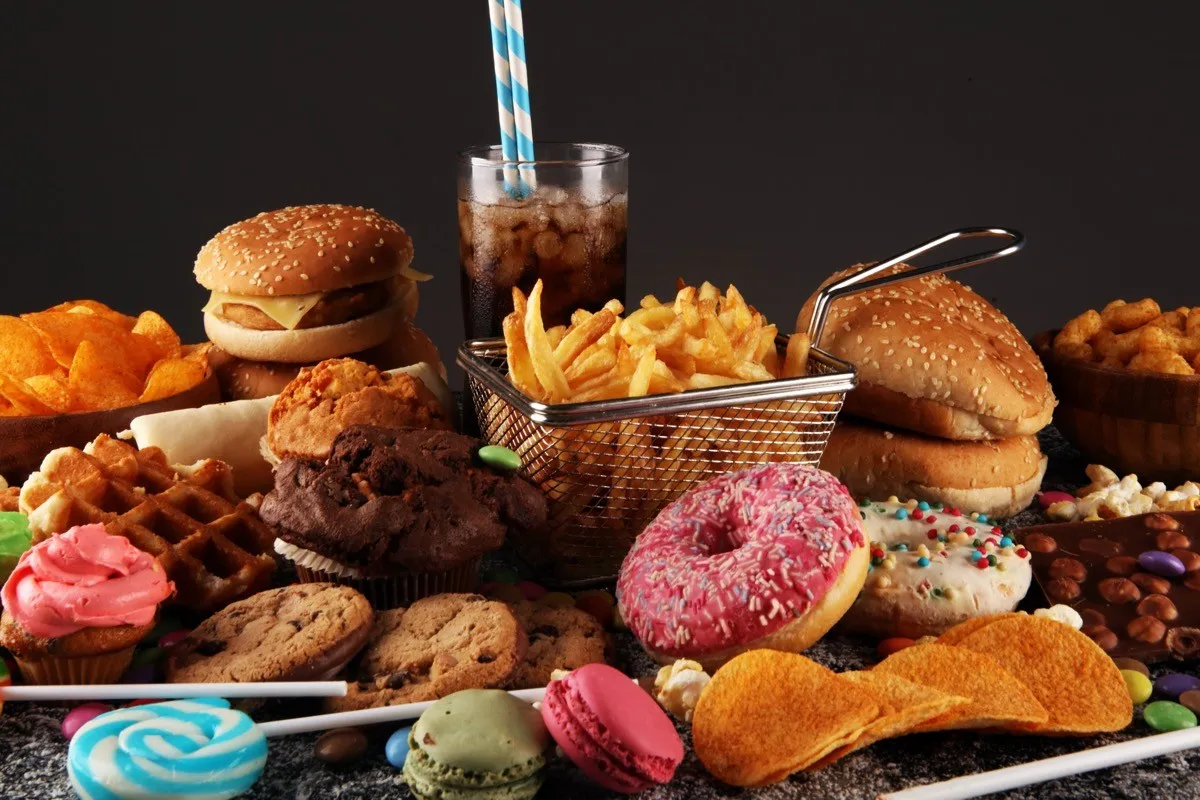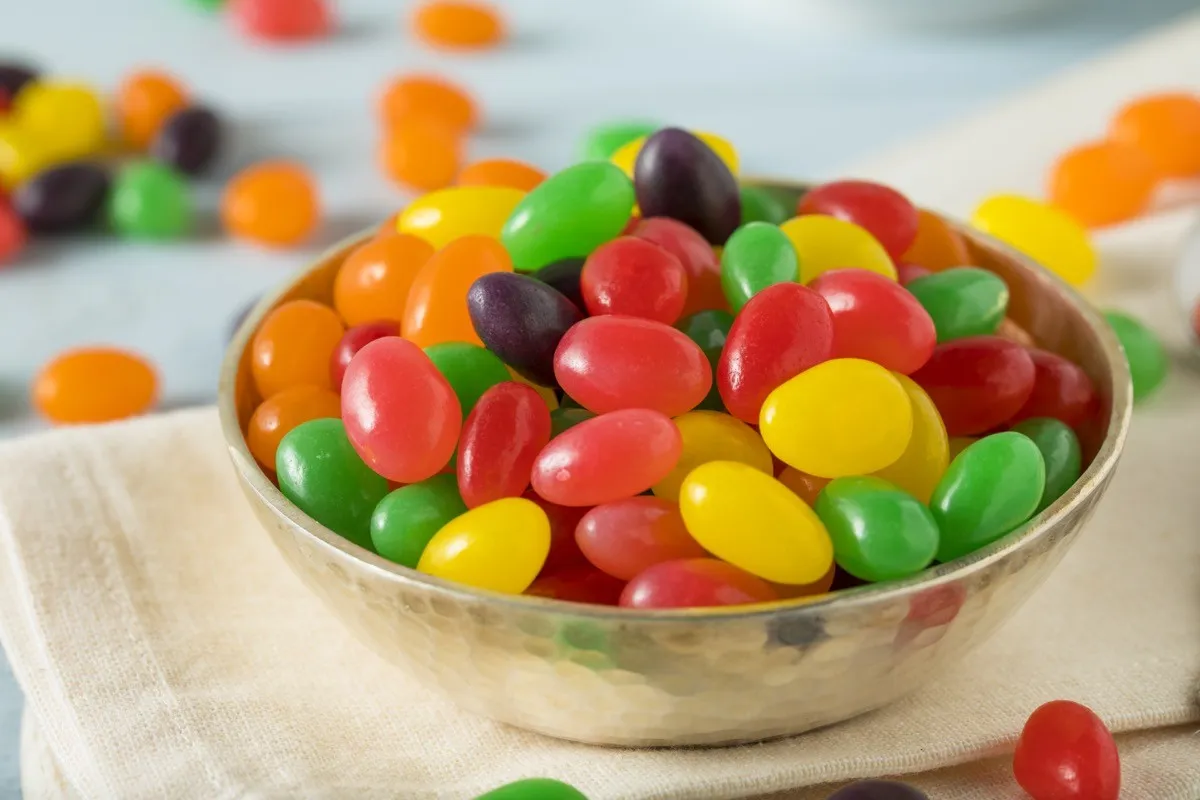6 Foods That Increase Your Dementia Risk, According to Science

Doctors predict that new dementia cases in the U.S. will double by the year 2060, which means that “42 percent, or 2 in 5 Americans age 55 and older, could have some form of the condition,” as Best Life reported earlier this week. But there are many science-backed ways to protect your cognitive health, such as doing puzzles, exercising, and sticking to a healthy diet. However, there is plenty of research that suggests what we don’t do can be just as important as what we do. For example, avoiding these six foods could lower your risk of developing dementia.
1
Processed meats

It’s well established that processed meats such as salami, sausage, and bacon are high in sodium and trans fats and, therefore, bad for cardiovascular health. But a study published in Jan. 2025 in the journal Neurology suggests that this type of food can also increase your risk of dementia.
After analyzing the health data of 133,771 U.S. adults over 40 years, the researchers found that those who ate a quarter-serving or more of red meat a day had a 13 percent greater chance of developing dementia than those who ate small amounts of red meat or none at all.
Daniel Wang, a senior author of the study and an assistant professor in the Department of Nutrition at the Harvard T.H. Chan School of Public Health, told The Washington Post that he believes there are few reasons for this.
First, processed meats are high in sodium, which “can increase blood pressure and cause vascular problems that have an impact on the brain,” the Post explains.
They also have high amounts of nitrates and nitrites, which can lead to oxidative stress in the body, and their high saturated fat content can raise cholesterol, in turn affecting brain neurons.
2
Ultra-processed foods

Simply put, ultra-processed foods are those that have been modified from their original state and contain little or no whole foods. Instead, they’re made with things like added sugar, preservatives, artificial dyes, and other chemical additives.
And according to a 2022 study published in JAMA Neurology, consuming these foods can spike your dementia risk.
To arrive at their findings, the researchers split 10,775 individuals into three groups: one that ate unprocessed fruits, vegetables, meat, and fish; another that ate processed foods with preservatives added, such as canned fruits, fish, and meats; and a third that ate ultra-processed foods containing sweeteners, colorings, and other ingredients.
After an eight-year period, researchers determined that those who ate more than 20 percent of their daily calorie intake from ultra-processed foods saw a 25 percent faster decline in cognitive function throughout the study.
They also showed a 28 percent more rapid rate of cognitive decline than participants with the least ultra-processed food consumption.
3
Spicy foods

According to a 2019 study published in the journal Nutrients, spicy foods may speed up the onset of dementia.
Researchers from Qatar University assessed chili intake and the rate of cognitive decline in nearly 5,000 Chinese adults aged 55 and older over 15 years. They found that those who consumed more than 50 grams of chili peppers per day had almost double the risk of cognitive decline than those who abstained from them.
Interestingly, the food’s impact on memory loss seemed to be stronger in those who had lower BMIs and were more physically active, which researchers believe may be due to their heightened sensitivity.
The research included both fresh and dried chili peppers, but excluded sweet pepper and black pepper, the latter of which are arguably more popular in the U.S. But condiments that are made from chili peppers, such as Sriracha, are common here.
However, a more recent study found a link between spicy food intake and Alzheimer’s-related cognitive decline in older adults with low physical activity, specifically as relates to “memory or global cognition.”
4
Alcohol

The effects of drinking are on everyone’s mind after the surgeon general issued new guidelines last week that highlight the link between cancer risk and alcohol.
But a study published in 2023 in the journal JAMA Network Open suggests that alcohol may also increase one’s dementia risk.
The study of nearly four million individuals in Korea found that keeping your alcohol consumption to about one drink a day lowers dementia risk by 21 percent, while those who have two drinks a day have a 17 percent lower risk. Conversely, participants who had three or more drinks a day were at an eight-percent increase risk of developing dementia.
In speaking with CNN, Richard Isaacson, MD, a preventive neurologist at the Institute for Neurodegenerative Diseases of Florida who was not involved in the study, put this in perspective by noting how people may not be aware of how much alcohol they’re actually consuming.
“They may think they are drinking a standard-sized glass of wine, but it’s really a glass and a half every time. Drink two of those pours and they’ve had three glasses of wine. That’s no longer mild or moderate consumption,” he explained.
5
Artificially sweetened drinks

A 2017 study published in the journal Stroke concluded that people who drink at least one diet soda a day were nearly twice as likely to have a stroke than those who didn’t drink diet soda and three times as likely to develop an ischemic stroke.
The researchers also found that people who drank at least one artificially sweetened beverage a day were three times as likely to develop dementia.
However, this was an observational study, meaning the investigators did not intervene in any way.
Therefore, in speaking with The Guardian about these results, James Pickett, head of research at Alzheimer’s Society, said, “This research does not show that artificially sweetened drinks cause dementia. But it does highlight a worrying association that requires further investigation.”
6
Added sugar

According to the USDA’s Dietary Guidelines for Americans (DGA), adults should limit added sugar intake to less than 10 percent of total daily calories. Alarmingly, people in the U.S. consume over 25 teaspoons of sugar per day on average, getting 20 percent of their daily calories from sugar.
“Large amounts of added sugar in the diet can lead to spikes in insulin levels, increasing insulin resistance over time,” explains Erin Palinski-Wade, RD, CDE, registered dietitian and author of 2-Day Diabetes Diet. “Insulin resistance in the body is linked to a decline in cognitive function and an increased risk of dementia.”
To her point, a 2021 study published in The Journal of Prevention of Alzheimer’s Disease found that higher consumption of sugar-sweetened beverages was associated with an increased risk of dementia, Alzheimer’s disease, and stroke.
Researchers recruited over 1,800 participants and determined that those who drank one to seven servings per week of beverages with added sugar had a substantially higher risk of dementia than those who drank sugar-free beverages. The risk was even higher for those who consumed more than seven servings of sugary drinks per week.
The foods you should eat to prevent dementia.

In addition to cutting out these potentially harmful foods, there are certain things you can add to your diet to reduce your risk of dementia.
On the opposite end of the spectrum from processed foods are whole foods like fruits, vegetables, legumes, and whole grains. An easy way to think about this is shopping the periphery of your grocery store.
Eating plenty of whole foods high in vitamins, minerals, fiber, and antioxidants can nourish your brain and protect it from oxidative stress, which is a major driver of chronic inflammation. Inflammation can damage cells and lead to the two main types of dementia—Alzheimer’s disease and vascular dementia.
Palinski-Wade tells Best Life, “Eating a well-balanced diet rich in fiber, plant-based fats, and antioxidants may help to promote brain health. Adding more fruits and vegetables to the diet along with nuts, seeds, beans, lentils, and fatty fish can offer protective benefits to the brain and organs such as the heart.”